Tarot hiéroglyphique égyptien
The design of the cards draws inspiration from various religious and philosophical traditions merged into a sort of holistic tarot deck.
Mme Dulora de la Haye resided at 10 rue de Richelieu, Paris around the turn of the 20th century and published several books on popular mystical and occult topics of the day, as well as this set of cartomantic tarot cards. She drew inspiration from both the Etteilla deck and the Tarot de Marseille, and the inclusion of astrological symbols, Hebrew letters and other esoteric imagery, plus the title itself and reference to hieroglyphs, suggesting a derivation from ancient Egyptian symbolism, reflects her quest to integrate all this into a holistic tarot deck. Not easy for beginners, in spite of what is claimed in the accompanying leaflet
Dulora de la Haye's "Tarot hiéroglyphique égyptien" is an example of how personal vision can result in a distinctive and avant-garde tarot deck, which possibly enhanced her reputation as a visionary clairvoyant, However, it may be seen as superficial and confusing. In due course A.E Waite, Aleister Crowley and others would bring their own perspectives and understanding into new innovative decks in the 20th century, as the quest continued to create the ultimate tarot deck.
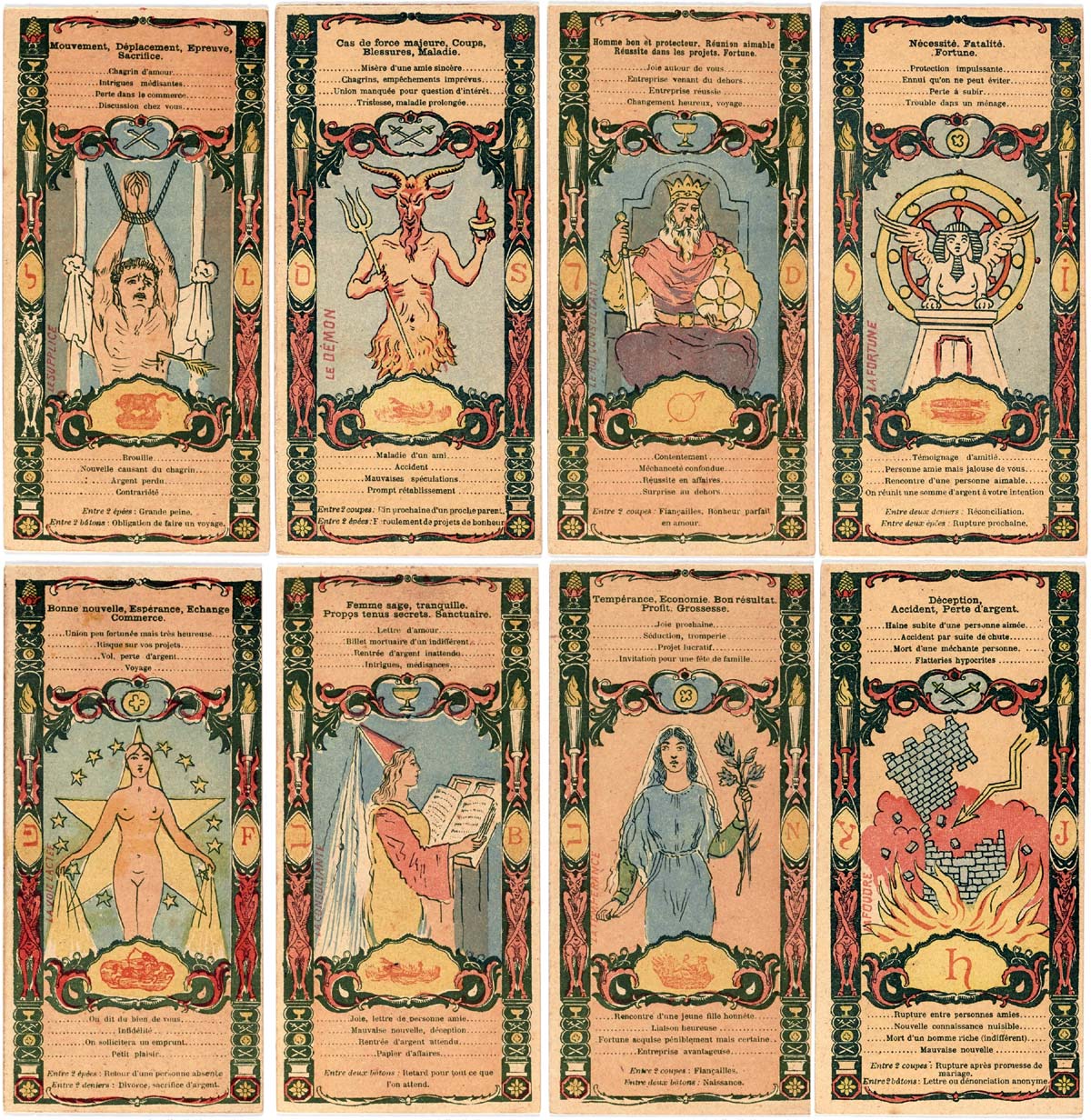
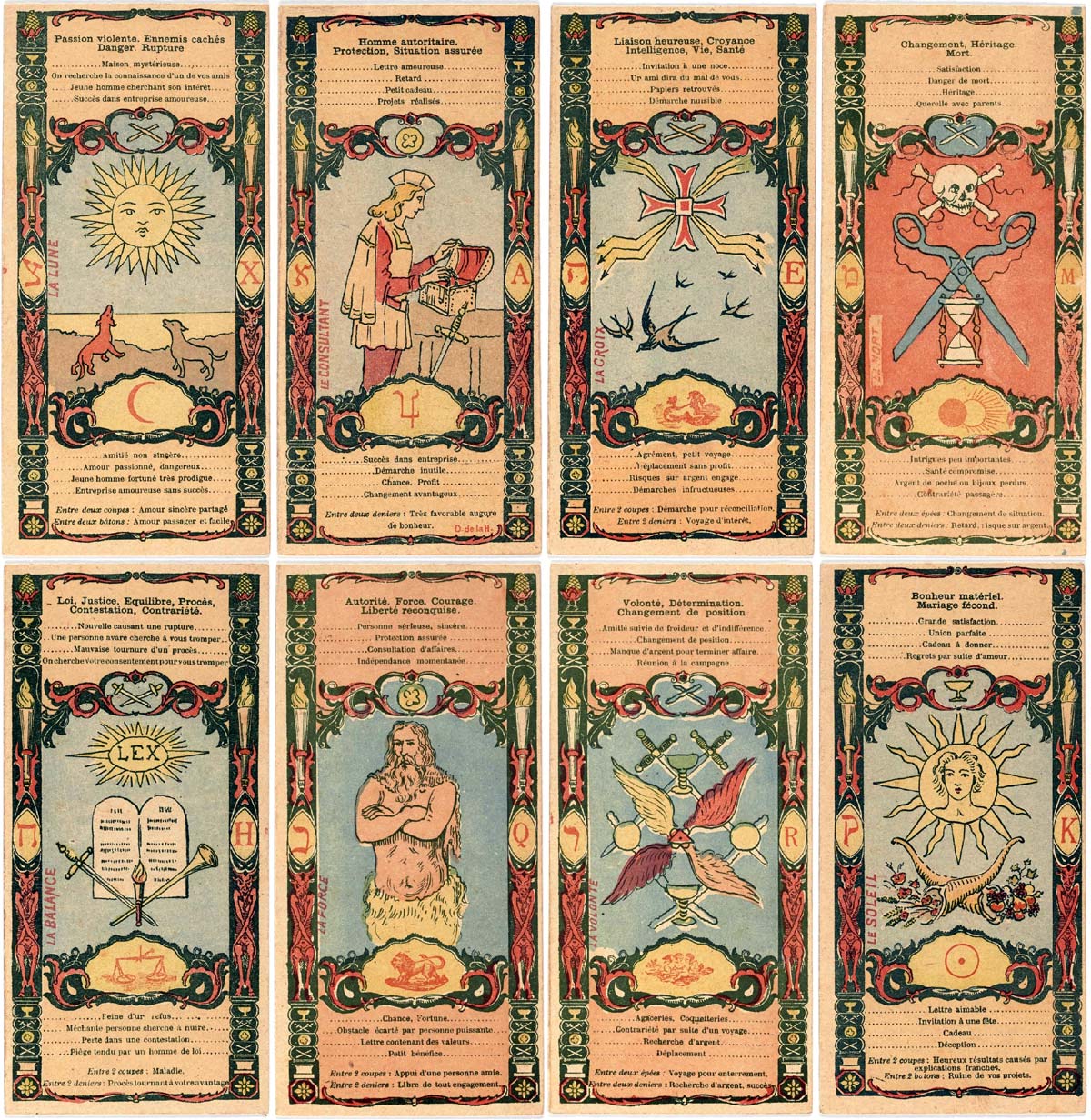
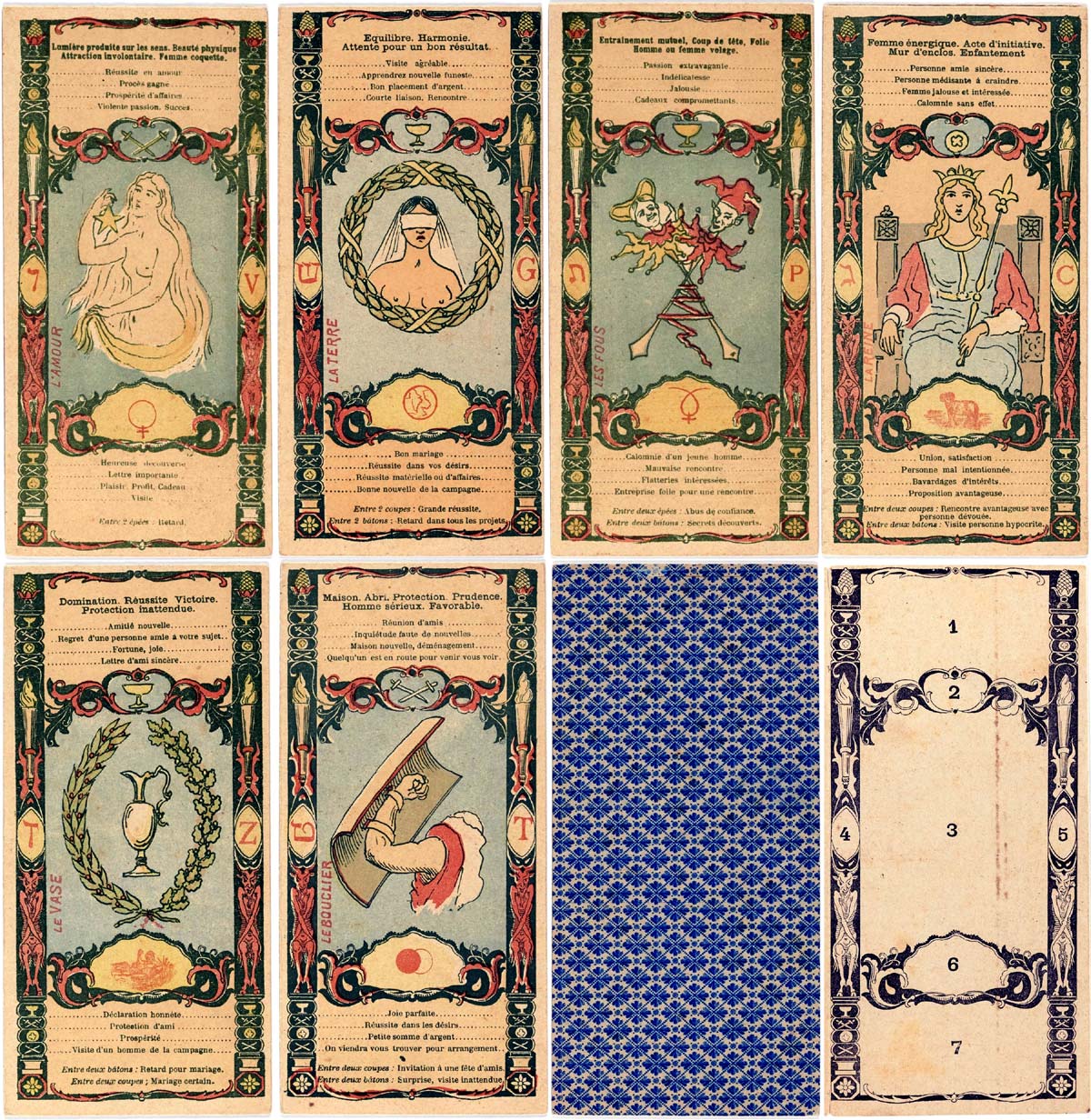
Above: Tarot hiéroglyphique égyptien designed by Mme Dulora de La Haye and published by Hayard et Cie, 1897. 22 cards + 12-page booklet in box. Mme Dulora's address is printed in red ink on the case : "10 rue de Richelieu (Entresol), Paris", as well as in a blue stamp on the booklet. Source gallica.bnf.fr / Bibliothèque nationale de France.
References & Links
Museo del Tarot: facsimile edition published in 2016 by Éditions Dusserre►
Bibliothèque nationale de France: Tarot hiéroglyphique égyptien►
By Simon Wintle
Spain • Member since February 01, 1996 • Contact
I am the founder of The World of Playing Cards (est. 1996), a website dedicated to the history, artistry and cultural significance of playing cards and tarot. Over the years I have researched various areas of the subject, acquired and traded collections and contributed as a committee member of the IPCS and graphics editor of The Playing-Card journal. Having lived in Chile, England, Wales, and now Spain, these experiences have shaped my work and passion for playing cards. Amongst my achievements is producing a limited-edition replica of a 17th-century English pack using woodblocks and stencils—a labour of love. Today, the World of Playing Cards is a global collaborative project, with my son Adam serving as the technical driving force behind its development. His innovative efforts have helped shape the site into the thriving hub it is today. You are warmly invited to become a contributor and share your enthusiasm.

Leave a Reply
Your Name
Just nowRelated Articles
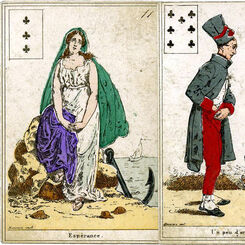
French Cartomancy cards, c.1830
French Cartomancy cards published by J. Gaudais; printed by Mansion, Paris, c.1830.
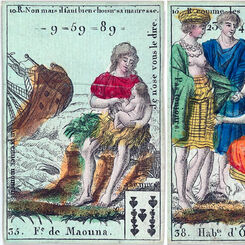
Costumes des Peuples Étrangers
Costumes des Peuples Étrangers & Jeu d’Or dedicated to young people and likely used for games and fo...
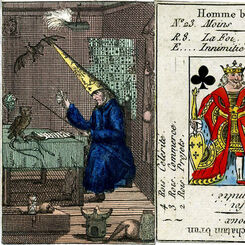
Le Nouvel Etteilla
“Le Nouvel Etteilla” cartomancy deck published in Paris by La Veuve Gueffier, 1806.
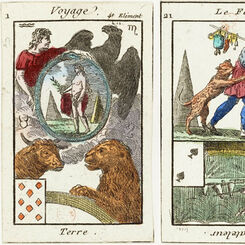
Le Petit Oracle des Dames
Le Petit Oracle des Dames ou Récréation des Curieux, Paris, 1807.
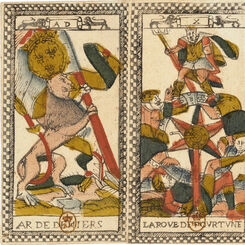
The Parisian Tarot
The “Parisian Tarot”, early 1600s, with imagery and design synthesizing several influences.
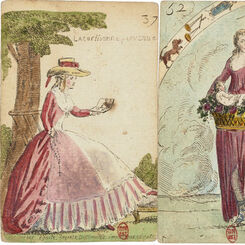
Jeu de Cartomancie pour l’amusement des Dames
Early French Cartomancy deck "for the amusement of Ladies" but also referred to as "Jeu divinatoire ...
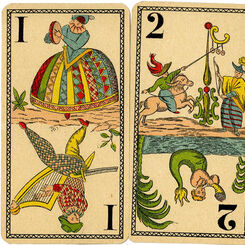
Oriental Scenes tarock
Trumps have oriental scenes on one end of the card, and mermaids, mermen, assorted sea serpents and ...
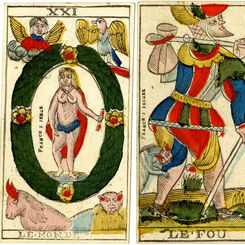
Besançon Tarot by Jacob Jerger
Besançon tarot published by Jacob Jerger, 18th century.
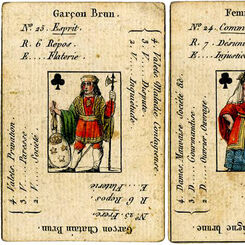
Petit Etteilla cartomancy cards
“Petit Etteilla” cartomancy cards designed and published by Jacques Grasset de Saint-Sauveur, Paris ...
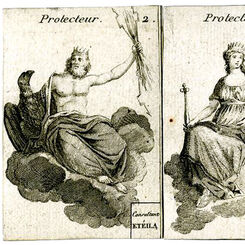
Nouvel Eteila ou le petit nécromancien
“Nouvel Eteila ou le petit nécromancien” cartomancy cards from France, late 18th century.

Jean Noblet Tarot de Marseille
Jean Noblet: the oldest known ‘Tarot de Marseille’ deck, Paris, c.1650.
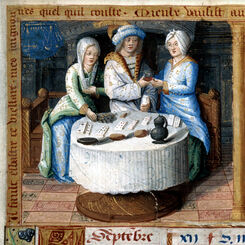
Gambling and Vice in the Middle Ages
Gambling and Vice in the Hours of Charles V: card-playing in the local tavern
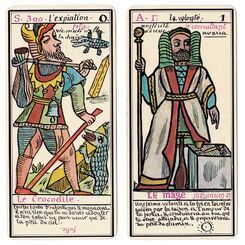
Le Grand Tarot Belline
“Le Grand Tarot Belline” after drawings by Edmond Billaudot (1829-1881).

Nine Lives Tarot
Nine Lives Tarot by Annette Abolins represents the artist’s creative and spiritual perspective on li...

Tarot de l’An 2000
“Tarot de l’An 2000” designed by Pino Zac, 1981, satirising 20th century life.
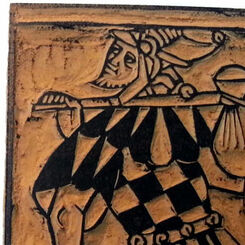
Lilian Cailleaud’s Tarot Project
Lilian Caillaeud lino-cuts his version of the tarot by Nicolas Rolichon of Lyon c.1600
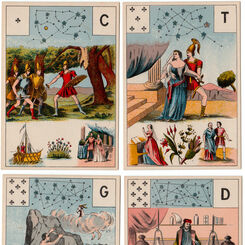
Grand Jeu Lenormand
Chaotic Grandeur in a collage of astrology, folklore and mythology from Parisian salons.
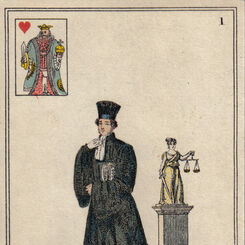
Livre du Destin
Livre du Destin / The Book of Fate, c.1900, entire deck (32 cards)
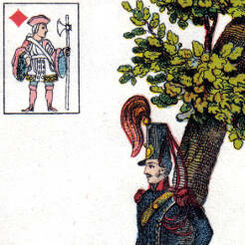
Livre du Destin
Livre du Destin or Book of Fate, printed by B.P.Grimaud, Paris, c.1900.
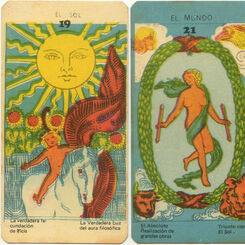
Ramses II tarot
Ramses II Tarot deck was published c.1975 in conjunction with a Peruvian occult or esoteric magazine...
Most Popular
Our top articles from the past 60 days


 Your comment here. Your comment here. Your comment here. Your comment here. Your comment here. Your comment here. Your comment here. Your comment here. Your comment here. Your comment here. Your comment here. Your comment here. Your comment here. Your comment here. Your comment here. Your comment here. Your comment here. Your comment here. Your comment here. Your comment here. Your comment here. Your comment here. Your comment here. Your comment here. Your comment here. Your comment here. Your comment here. Your comment here. Your comment here. Your comment here. Your comment here. Your comment here.
Your comment here. Your comment here. Your comment here. Your comment here. Your comment here. Your comment here. Your comment here. Your comment here. Your comment here. Your comment here. Your comment here. Your comment here. Your comment here. Your comment here. Your comment here. Your comment here. Your comment here. Your comment here. Your comment here. Your comment here. Your comment here. Your comment here. Your comment here. Your comment here. Your comment here. Your comment here. Your comment here. Your comment here. Your comment here. Your comment here. Your comment here. Your comment here.




















